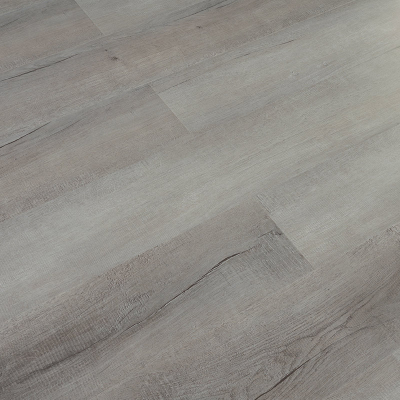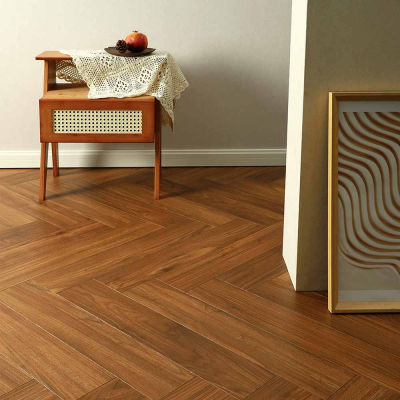waterproof flooring options for homes
Product Definition
Waterproof flooring options for homes refer to engineered floor systems designed to resist water penetration, dimensional swelling, and surface degradation under daily household moisture exposure. Common solutions include SPC, WPC, waterproof laminate, and vinyl systems, selected based on performance requirements, installation conditions, and lifecycle cost.
Technical Parameters and Specifications
When evaluating waterproof flooring options for homes, technical parameters must align with residential engineering standards and long-term service expectations.
Total thickness: 4–10 mm depending on core type
Core density: SPC ≥ 2.0 g/cm³; WPC 0.8–1.2 g/cm³
Water absorption (24h): ≤ 0.5%
Wear layer thickness: 0.3–0.5 mm (residential use)
Dimensional stability: ≤ 0.15% change
Installation temperature range: 18–30°C
Structure and Material Composition
Most waterproof flooring options for homes are multi-layer engineered products designed for floating installation and moisture resistance.
UV Wear Layer: Protects against abrasion, stains, and household chemicals
Decorative Film: High-resolution printed wood or stone visuals
Waterproof Core: SPC (stone-polymer) or WPC (wood-polymer) composite
Stabilizing Back Layer: Balances internal stress and prevents warping
Click Lock Profile: Precision-milled joints enabling sealed connections
Manufacturing Process and Engineering Control
Core Manufacturing Stages
Raw material formulation and mixing
High-pressure extrusion or hot pressing
Thickness calibration and controlled cooling
Surface lamination and UV coating
CNC cutting and locking profile machining
Quality inspection and batch testing
Process Factors Affecting Home Performance
Consistent density control and accurate locking profiles are critical. Poor manufacturing tolerances increase the risk of joint leakage, noise, and surface deformation in residential environments.
Industry Comparison of Waterproof Flooring Options
| Flooring Type | Water Resistance | Comfort Level | Typical Home Areas |
|---|---|---|---|
| SPC Flooring | 100% Waterproof | Firm | Kitchens, bathrooms, basements |
| WPC Flooring | Waterproof | Soft | Living rooms, bedrooms |
| Waterproof Laminate | High (Surface-sealed) | Moderate | Living areas, dining rooms |
| Traditional Laminate | Limited | Moderate | Dry areas only |
Application Scenarios and Target Users
Waterproof flooring options for homes are specified and procured by:
Residential flooring distributors
Home renovation contractors
EPC firms handling housing projects
Property developers and importers
Common residential applications include kitchens, bathrooms, laundry rooms, corridors, and ground-floor living spaces.
Core Pain Points and Engineering Solutions
Pain Point 1: Moisture-Related Swelling
Solution: Select flooring with fully waterproof cores and sealed locking systems.
Pain Point 2: Noise and Hollow Sound
Solution: Use integrated underlayment or acoustic backing layers.
Pain Point 3: Joint Failure Over Time
Solution: Ensure precision-milled click systems and controlled installation gaps.
Pain Point 4: Visual Degradation
Solution: Specify UV-resistant wear layers suitable for household traffic.
Risk Warnings and Mitigation Recommendations
Risk: Installing over uneven subfloors
Mitigation: Level subfloor to ≤ 3 mm / 2 m toleranceRisk: Inadequate perimeter expansion space
Mitigation: Maintain 5–8 mm expansion gapsRisk: Water pooling during construction
Mitigation: Install flooring after plumbing and wet works
Procurement and Selection Guide
Assess moisture exposure by room function
Choose appropriate core type (SPC or WPC)
Verify wear layer thickness and test reports
Confirm locking system certification and tolerances
Request full technical datasheets and samples
Evaluate supplier quality management systems
Engineering Case Example
In a 120-unit residential apartment project, SPC waterproof flooring was installed in kitchens, bathrooms, and corridors. Subfloor moisture control and floating installation methods resulted in zero swelling incidents and stable performance after two years of occupancy.
Frequently Asked Questions (FAQ)
Q1: Are waterproof flooring options for homes fully moisture-proof?
The core resists water, but proper installation is essential.
Q2: Can waterproof flooring replace ceramic tiles?
Yes, in many residential applications with lower structural load.
Q3: Is underlayment always required?
Some products include built-in backing; verify specifications.
Q4: Can waterproof flooring be installed over tiles?
Yes, if the surface is flat and stable.
Q5: Does waterproof flooring support underfloor heating?
Most SPC systems do, within temperature limits.
Q6: How long is the service life?
Typically 15–25 years under normal residential use.
Q7: Are these floors suitable for basements?
Yes, provided vapor barriers are installed.
Q8: How are damaged planks replaced?
Replacement depends on layout and locking system access.
Q9: What certifications should buyers request?
Dimensional stability, VOC, and water absorption reports.
Q10: Can waterproof flooring fade under sunlight?
UV-protected wear layers minimize fading.
Call to Action
For detailed specifications, pricing information, or residential project samples of waterproof flooring options for homes, request technical documentation from our engineering support team.
E-E-A-T: Author and Industry Expertise
This article is authored by a building materials engineer specializing in residential waterproof flooring systems, with over 10 years of experience supporting distributors, EPC contractors, and housing developers across multiple international markets.





